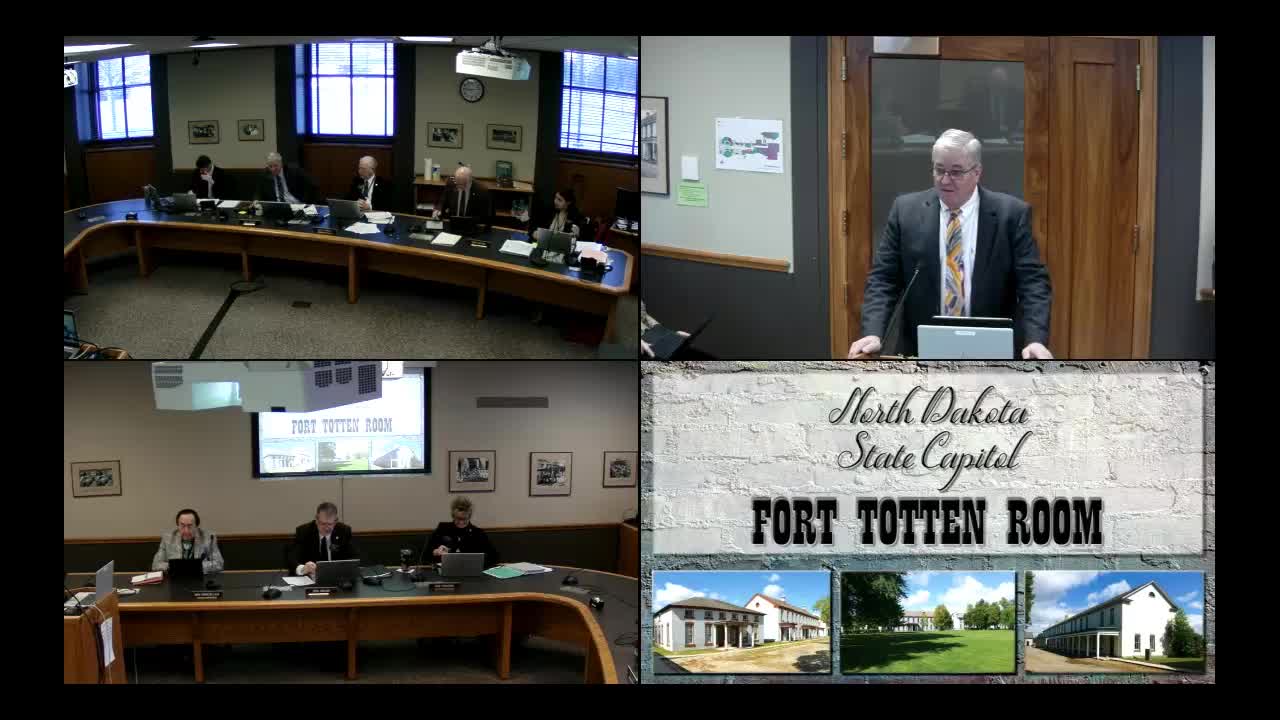Senate finance committee hears bills to reclassify standalone garages on residential lots
Get AI-powered insights, summaries, and transcripts
Subscribe
Summary
The Senate Finance and Tax Committee heard two similar bills that would change state tax code so residential lots with standalone garages or outbuildings in residential subdivisions are taxed as residential rather than commercial; committee members asked for more input from county assessors and the Association of Counties and took no action.
The Senate Finance and Tax Committee on an unspecified date heard House Bill 11-52 and House Bill 12-32, measures that would change how the century code classifies certain residential lots that currently are taxed as commercial when an outbuilding exists but a dwelling does not.
Representative Todd Porter (District 34, Mandan) told the committee the change was prompted by a subdivision outside Mandan in Morton County where lots were sold with a garage built before the house. “The way that that is dealt with in the tax code is that if it's undeveloped residential property, it's dealt with as commercial property in the tax code until there's a residence on the property,” Porter said. He said the bill would bring such lots into the residential tax category when no business is being operated from the outbuilding.
The measure would alter how the state’s Century Code defines a residential property for property-tax classification; Representative Porter referenced the relevant language in the Century Code. He said the proposed change would reduce the tax rate on affected parcels that had been classified as commercial. “That language would take care of his situation where he has a garage that he has his boat and couple of old cars in on a residential lot. It would take him into the residential tax category,” Porter said.
Committee members pressed for clarification about the roles of zoning and tax assessment. Porter and other witnesses reiterated that zoning (what counties or cities allow on a parcel) and tax classification are separate: zoning is decided locally, while assessors apply Century Code definitions when classifying property for taxation. “The tax assessor makes that call, but that call is based off of what's in the Century Code,” Porter said.
A Morton County resident, Lanny Kenner (District 7), testified that he was less opposed after hearing details but raised a broader concern about local control over taxation. Questions from senators centered on edge cases: whether a parcel with a house elsewhere would qualify, whether agricultural uses would change classification, and how counties historically applied the rule. Committee members noted one county had reclassified several lots after a new assessor took office and applied training that led to a commercial designation.
Representative Grenache (House Bill 12-32) made a similar presentation later in the hearing record, saying the bills are intended to “clean that up” so lots in residential neighborhoods that are clearly intended for future dwellings are taxed as residential rather than commercial. He said the change would be minor in revenue impact and would correct what he described as an unintended consequence of the current wording in Century Code section 57-02.
No votes were taken on either bill. Senators advised staff to consult the Association of Counties and the state tax department to confirm operational impacts and any wording differences between the two bills before the committee moves forward. Chairman Weber and members agreed to leave both items pending that additional input.
The bills remain under committee consideration; no formal action was recorded.
